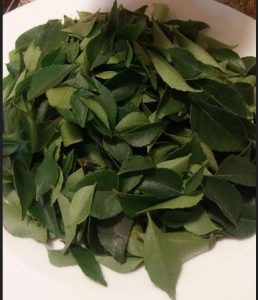Ayurvedic Herbs Every Home Should Have
In today’s fast-paced world, health often takes a backseat to busy schedules, stress, and modern conveniences. But Ayurveda, the ancient Indian system of natural healing, reminds us that true wellness begins at home, with the food we eat and the herbs we keep close. For thousands of years, Ayurvedic herbs have been trusted to support digestion, immunity, energy, and overall balance. The best part? Many of these herbs are simple, affordable, and can easily find a place in your kitchen or wellness cabinet.
If you’re ready to bring more balance, vitality, and healing into your daily life, here are some Ayurvedic herbs every home should have.
1. Turmeric (Haldi) – The Golden Healer
Turmeric is perhaps Ayurveda’s most celebrated herb. Packed with curcumin, it’s a natural anti inflammatory, antioxidant and immunity booster. Traditionally, it’s used for everything from joint pain and skin health to improving digestion. A warm cup of turmeric milk (often called golden milk) can soothe the body, ease inflammation, and support restful sleep.
How to use at home:
-
- Add a pinch of turmeric to soups, curries, or rice for flavor and healing.
-
- Mix turmeric with warm milk and honey for a comforting evening drink.
-
- Apply turmeric paste (mixed with sandalwood or rose water) to help brighten the skin.
2. Tulsi (Holy Basil) – The Queen of Herbs
Revered in Ayurveda and often planted in Indian homes for its sacred energy, Tulsi is a powerful herb for stress relief, respiratory health, and immunity. Its adaptogenic properties help the body cope with physical and emotional stress while promoting clarity and calmness.
How to use at home:
-
- Brew tulsi leaves in hot water for a soothing herbal tea.
-
- Combine with ginger and honey to ease colds or sore throats.
-
- Keep a Tulsi plant at home; it purifies the air and brings positivity.
3. Ashwagandha – The Natural Energy Booster
Ashwagandha is known as an adaptogen, which means it helps the body adapt to stress. It supports energy levels, boosts stamina, and enhances mental clarity. In Ayurveda, it’s also called the “strength of the horse” for its rejuvenating power. Whether you’re dealing with fatigue, anxiety, or sleep issues, ashwagandha can be a natural ally.
How to use at home:
-
- Mix ashwagandha powder with warm milk before bedtime to calm the mind.
-
- Add it to smoothies for a nourishing boost.
-
- Take in capsule or tablet form as per an Ayurvedic practitioner’s advice.
4. Ginger (Adrak) – The Universal Remedy
Called Vishwabheshaja in Ayurveda, meaning “universal medicine,” ginger is one herb every kitchen should never be without. It’s excellent for digestive health, nausea, coughs, and circulation. Ginger kindles the digestive fire (Agni), helping the body process food more efficiently and supporting nutrient absorption.
How to use at home:
-
- Sip warm ginger tea with honey and lemon to soothe the throat.
-
- Add freshly grated ginger to stir-fries, curries, or salad dressings.
-
- Chew a small slice of fresh ginger with salt before meals to improve digestion.
5. Triphala – The Gentle Detoxifier
Triphala is a combination of three fruits, Amalaki (Amla), Bibhitaki, and Haritaki, and is considered a cornerstone of Ayurvedic wellness. It acts as a mild detoxifier, supporting digestion, bowel regularity, and cleansing the system without harsh effects.
How to use at home:
-
- Take Triphala powder with warm water before bedtime for gentle cleansing.
-
- Use as a supplement to improve gut health.
-
- Rinse your mouth with Triphala water for oral hygiene.
6. Cinnamon (Dalchini) – The Sweet Balancer
Warm, sweet, and aromatic, cinnamon is more than just a kitchen spice. Ayurveda values it for balancing blood sugar, improving circulation, and enhancing digestion. It’s especially supportive for those with sluggish metabolism or cold extremities.
How to use at home:
-
- Add cinnamon to your morning tea, coffee, or smoothies.
-
- Sprinkle it over oatmeal, fruit, or desserts for flavor and health.
-
- Use in herbal blends to support heart health and warmth in the body.
7. Neem – The Purifier
Neem is known in Ayurveda as a natural purifier and detoxifier. Its bitter taste may not win everyone over, but it’s incredibly powerful for skin health, immunity, and cleansing the blood. Neem is often called “nature’s pharmacy” for its wide range of benefits.
How to use at home:
-
- Use neem oil diluted with coconut oil for skin care.
-
- Drink neem tea (in moderation) to detoxify the body.
-
- Keep neem leaves in stored grains as a natural preservative.
Why These Herbs Belong in Every Home
Ayurveda teaches that health is not about quick fixes, but about balance and daily care. By keeping these herbs at home, you’re not just stocking up on remedies; you’re building a lifestyle of wellness. From easing stress with tulsi to boosting digestion with ginger, these simple herbs are everyday allies for health, balance, and vitality.
In Conclusion
Bringing Ayurveda into your home doesn’t require big changes. Start small. Brew tulsi tea in the morning, sprinkle turmeric into your meals, or sip lemon water with ginger. Over time, these practices add up to create a healthier, calmer, and more resilient you.
Remember: Always consult with an Ayurvedic practitioner or healthcare provider before starting new herbs, especially if you’re pregnant, nursing, or on medication.
With these Ayurvedic herbs in your kitchen and wellness space, your home becomes more than a place to live; it becomes a sanctuary for healing and balance.
Simple herbs, timeless wisdom, and the gift of balance, that’s the Ayurvedic way.










